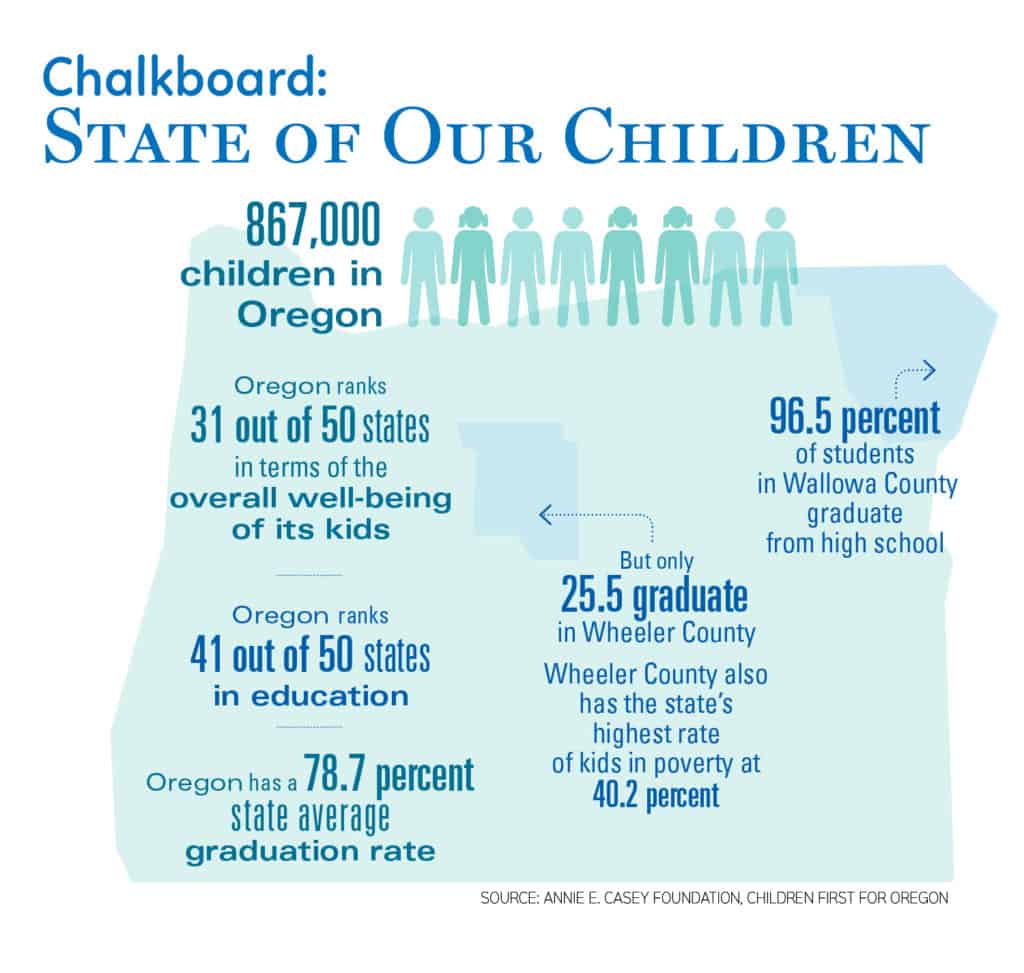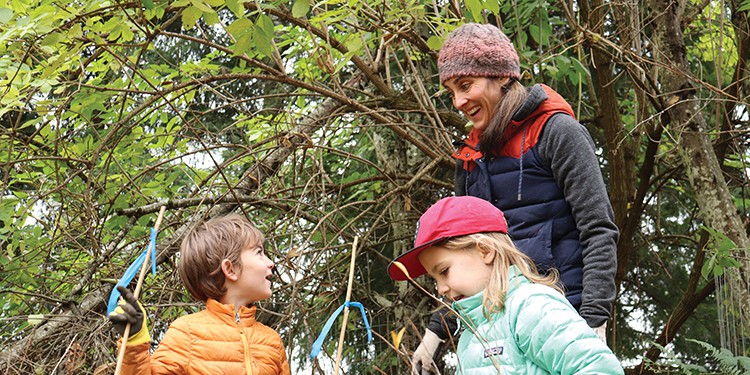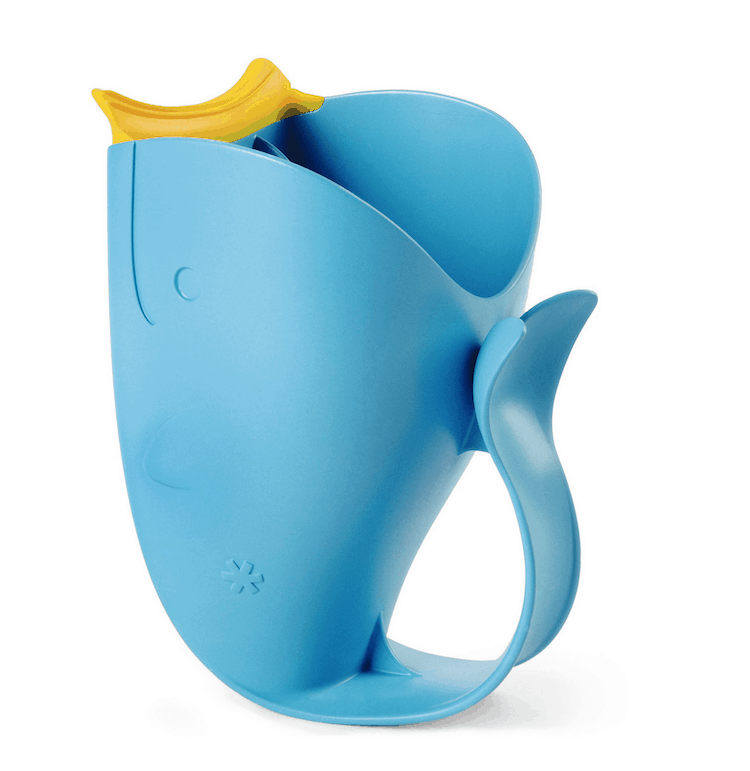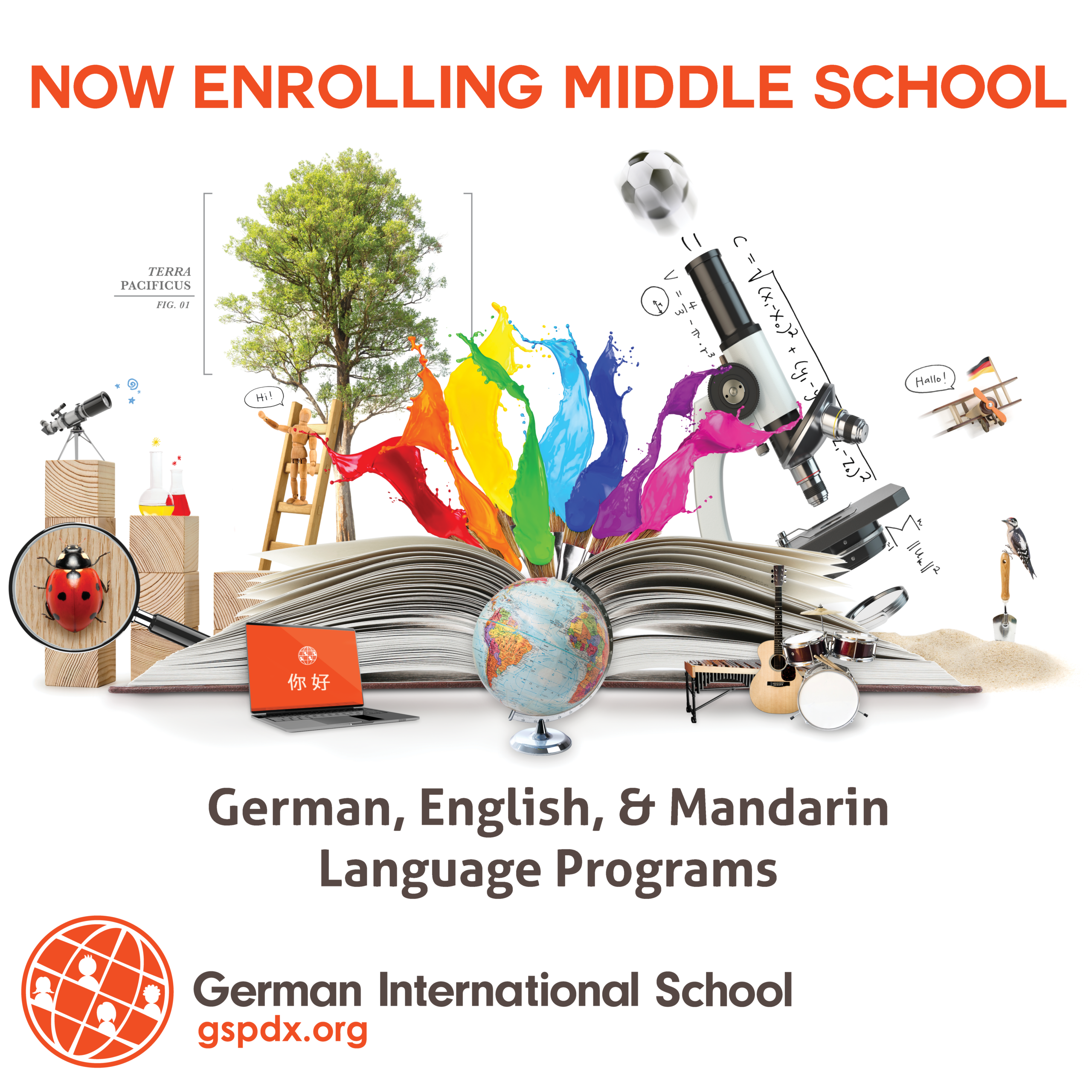Published as Play Room in the February 2020 issue of PDX Parent
Chalkboard: State of Our Children

Each year the Annie E. Casey Foundation takes a look at the overall well-being of children in the country, state by state. To measure overall well-being they rate several key factors: Economic well-being (how many families are living in poverty or have parents lacking secure employment); education (how many 4th graders are not proficient in reading, how high are high school graduation rates), health (how many babies are born at low birth weight); and family and community (are children living in high-poverty areas, or in families where the head of household lacks a high school diploma). In 2019 Oregon ranked 31st, falling one spot from the previous year. By contrast, Washington ranked 16th in the nation.
Children First for Oregon crunches the numbers from the Annie E. Casey Foundation and then looks at Oregon, county by county. Part of our state’s low overall well-being score is due to our low rank in education. “Within the education category, Oregon ranks 49 for on-time graduation, and toward the middle or lower-middle part of rankings for the other three education indicators,” says Tab Dansby, the KIDS COUNT coordinator/policy analyst at Children First for Oregon. While Oregon has always scored well in terms of children’s health, other states are catching up when it comes to getting children covered by health insurance, and that affected our overall standing this year as well.
So the numbers sound bleak, but there are things you can do. Dansby recommends making sure young children have secure and loving relationships — they are a critical buffer against toxic stress, which is detrimental to a child’s developing neurology and sense of attachment. And in terms of government policy, Dansby recommends speaking up for all families: “It’s important to advocate for programs that help families become more economically stable and successful. Not only programs like Temporary Assistance for Needy Families, but also policies like paid family and medical leave, so that families have the bandwidth to develop those secure and loving relationships from the time their child first enters the world.” — D.C.
Spotlight On: Josielyn Alcalá-Pérez

U.S. Marine Corps veteran, activist and mother Josielyn Alcalá-Pérez is tackling social justice reform on several fronts. She’s on the community action team with Next Up, an organization that aims to get diverse young people into positions of leadership in the hopes of creating a more equitable Oregon. And with fellow Marine Corps veteran, Mollie Juberien, Alcalá-Pérez started Rise4Reform, which raises awareness on the spike of sexual assaults in the armed forces and the hurdles victims of sexual assault in the military have to overcome. She’s running a marathon this year to raise funds for Protect Our Defenders, a group that is dedicated to ending sexual assault in the military. Another cause that is dear to her heart is family border separation and protection for Dreamers. “As a mom and daughter of two immigrants that went through similar struggles as these families seeking a better life, I could relate to their stories,” says Alcalá-Pérez. “When I would look at the news, I could see the faces of my parents and my family members in their faces. I knew that could have so easily have been me, or any of us really.”
So how does Alcalá-Pérez stay so engaged with her 4-year-old daughter in tow? “A thing I learned in the Marine Corps, is to ‘adapt and overcome.’ That means you may have difficult things thrown at you, or challenges, but you assess things and problem solve. Instead of thinking you can’t get involved because of things like child care, get creative and work with it or around it,” she says. “Bring toys or activities to a meeting to keep your little one busy for a bit. Conference call in. Find activities you can do at home such as writing postcards to voters or better yet, involve your kids. Take them canvassing with you for a measure you care about or a candidate you are passionate about.” And if you are worried about your young children not understanding why you feel the need to speak up or attend a protest, she gives this advice: “One thing that children understand is love, because it’s universal. It may almost sound counterintuitive, but if you come to a protest from a place of love and put it in a way in which children can relate to, they will grasp it.” — Denise Castañon
In the Know: Get Ready for OBOB
Oregon Battle of the Books (OBOB) is a statewide team reading competition that promotes the love of literature and cooperative learning. From Boring to Baker City, students in grades three to 12 compete. “I love the fact that every year, there are a few students who have not seen themselves as ‘readers’ who jump into OBOB and by the end, see themselves in a different light,” says Robin Rolfe, librarian at James John Elementary School in North Portland and coach of last year’s third to fifth grade state champs, The Rose City Readers.
Last year before the schoolwide competition, Rolfe’s teams met during school hours two to three times per month, read on their own, and used practice questions at home or at school. The winning Rose City Readers team had four out of five members read all 16 books with several students reading them multiple times. Before the regional competition, team members focused on specific books to become “experts” on, continued rereading and practiced at home and with friends. They also searched for practice questions, wrote their own questions and competed against each other. They did some experimenting with which speaker they thought worked best for the team and talked about team roles. Finally leading up to the state competition, Rolfe’s team took a break! They read what they wanted for a week and then … reread their books. Students studied individually, with families, or in informal groups. They also met one to two times per week at school. Rolfe also suggests that students decide on the team goal together and talk about the strengths each teammate brings. And one of her biggest tips: Have fun! — D.C.
Good Deeds: Wild about Wetlands

Did you know February 2 is World Wetlands Day? And did you know that Oregon is home to the country’s largest urban wetland? Introduce littles to the beauty and value of our wetlands by becoming a restoration volunteer. The Columbia Slough Watershed Council is hosting an all-ages volunteer event in Northeast Portland’s Smith and Bybee Wetlands on Sunday, February 2. Family-friendly Stewardship Saturday events are also happening this month at Columbia Children’s Arboretum on Saturday, February 1; and at Wilkes Creek Headwaters on Saturday, February 29. The native shrubs and trees your kids can help plant will restore wildlife habitat for pollinators and birds well beyond the winter months. All events run 9 am-noon. Pro tip: Bring sturdy shoes and wet-weather gear! These events run rain or shine. To pre-register, visit columbiaslough.org and click on “Events.” — Erin J. Bernard
Gear Guide: Balmy Weather
The long months of cold, windy weather can do a number on little lips! Keep kissers soft with these kid-friendly lip balms.
Best for a day on the mountain: Don’t hit the slopes without Badger Balm’s Clear Zinc Lip Balm Sunscreen. This organic, sustainable blend shields lips from the winter sun during long hours of skiing or sledding. $3.49. Badgerbalm.com.
Best multi-purpose balm: If you like your balm to do double-duty, try Booda Butter Naked Lip Balm. This soy-, bee- and gluten-free stick is gentle enough to dab anywhere on your kid’s face — or yours. $3.85. Boodaorganics.com.
Best local and sustainable balm: Portland Bee Balm’s responsibly made sticks come in four flavors featuring beeswax from PNW hives, and 1 percent of proceeds supports local urban bees and their keepers. Pro tip: Try Oregon mint! $2.99. Portlandbeebalm.com.
Best for taste-sensitive kids: Tempt the balm-averse with a swipe of EOS Lip Balm. A rainbow of seasonal and regular flavors from cotton candy to dulce de leche come packaged in colorful, twist-apart containers — perfect for tucking into little pockets. $3.29. Evolutionofsmooth.com.
-— E.J.B.
Playlist: Everything is Awesome

The first (and title) track of the new album Awesome! from Jesse Jukebox, aka Jesse Friedberg, starts off with more energy than your kids after eating cake at back-to-back birthday parties. But that energy is used for good; the message behind Awesome! is one of positivity and self-acceptance. I loved the list of awesome things kids can experience on any given day: mac ‘n’cheese, popping bubble wrap, the very first bite of a candy bar, a new backpack. Friedberg’s quirky, slightly nasally voice conveys a lot of heart. And my kids picked up on that instantly, listening very attentively the first time I played the album. Another standout track, Listen to Your Gut, encourages kids to trust their intuitions. And the song Complicated Kid stems from Friedberg’s childhood experience of struggling in school until he got an ADHD diagnosis. As he sings, “I can’t pay attention, understand the lessons or follow the rules,” you definitely feel empathetic. And kids who are going through similar struggles might feel good knowing they are not alone. — D.C.
We Recommend: Beat the Bath Time Blues

A bath can be anything but soothing for kiddos with sensory differences — especially when it comes time to wash that hair. Make your bathing routine feel like less of a battlefield by keeping the Moby Waterfall Bath Rinser close at hand. A soft rubber lip keeps those dreaded water droplets from running into eyes, interior fins ensure a quick rinse, and when you’re all done, the sweet blue whale doubles as a fun scooper and bath toy. $10. Skiphop.com. — E.J.B.
Ask Dr. Doug
Q: We recently had to put down our dog, which was really hard on our family. Our kids have had questions about it since, and I’m not always sure what to say. Do you have any tips on how to discuss this?
A: I’m so sorry — losing a pet or loved one is so difficult. I think it’s wonderful you’re thinking through how best to approach this topic with your kids.
Death impacts us all. It is a normal and natural part of life, and we shouldn’t hide or downplay the process. Children deserve our honesty and respect, especially around life transitions.
My dad died recently, and I want to share how my boys responded. He fought a long battle with cancer and thankfully was able to die at home peacefully. After he died I sat with his body, meditating and praying, and my 4-year-old came in and said, “Dad, why are you talking to Pop Pop? He’s dead. He can’t hear you. He’s not here anymore.” Then he wanted to go play with Grandmom. My 9-year-old on the other hand wanted to stay in his room rather than see his body. We were respectful of this decision as well. Later he asked how old Pop Pop was, and how old I am, quietly doing the math to see how much longer I might live. I was honest with him, and told him, “None of us know when we will die, but I’m alive right now and with you, I love you no matter what, and even after I die you will be safe and taken care of.” At his age he realizes death is permanent and universal.
Try not to use euphemisms when discussing what happened. Don’t tell them your loved one or pet is “resting” — bedtime will become unnecessarily fraught. “Passed on” or “in a better place” is appropriate in adult conversation, but with kids I would say “die” and “dead.” Explain that being dead means their body isn’t working anymore, they won’t move or talk anymore, and it won’t change. It’s OK to cry in front of them. Grieving is normal, and teaching our kids (especially our boys) that we don’t have to suppress our emotions is a valuable lesson.
Children grieve in different ways. Even toddlers will feel loss and might repeatedly ask where someone has gone. Play might center on dying. Don’t discourage this; it’s a healthy way for kids to work through their feelings. Try to keep routines as stable as possible, which will give them a greater sense of certainty. Be prepared for a long process — often kids will seem unaffected soon after a big change, but will have questions months later.
A good technique to use for questions is “ask, tell, ask,” meaning first ask them what they would like to know or what they understand. This will help you to better gauge their concerns. Tell them an amount of information appropriate to their age, then ask, “Do you have any other questions about that?”
Last, don’t be afraid to get help from a professional grief counselor. Finding meaning and connection in our lives when faced with the inevitability of our deaths is our greatest task. In this way our experiences around death can be a profound teacher for kids and adults alike.
- Summer Camps with Space - April 16, 2024
- Portland Half-Day Summer Camps - April 16, 2024
- Summer Camps with Space - April 15, 2024





